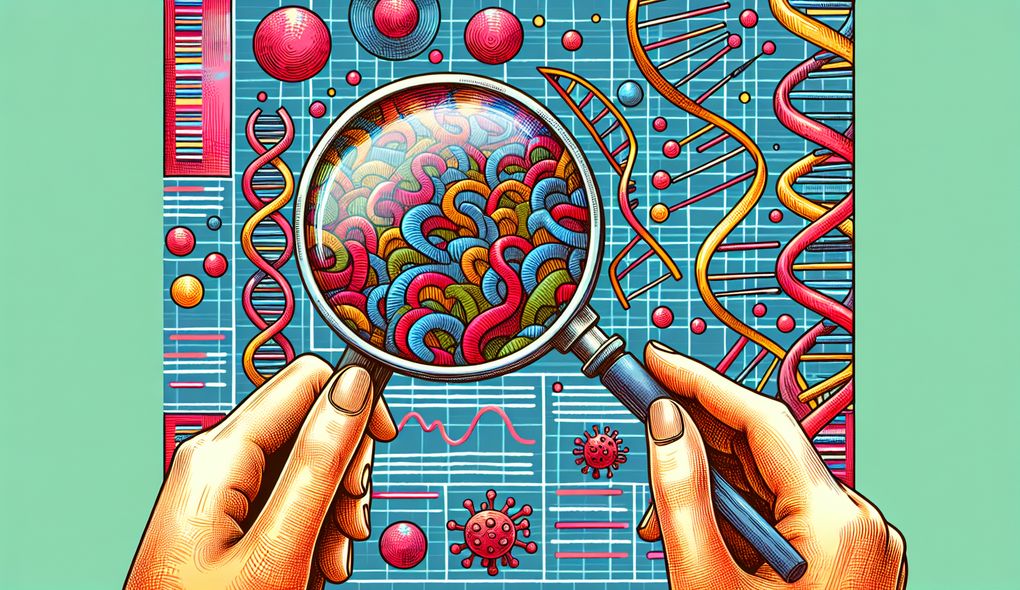Have you ever had to deal with conflicting opinions or perspectives regarding genetic testing? How did you handle it?
JUNIOR LEVEL

Sample answer to the question:
Yes, I have encountered conflicting opinions and perspectives regarding genetic testing in the past. For example, during my time as a genetic counselor intern, I worked with a patient who was hesitant to undergo genetic testing due to concerns about potential privacy breaches and insurance discrimination. To address this, I took the time to listen to the patient's concerns and provide detailed explanations about the privacy protections in place and the laws that protect against insurance discrimination. I also shared success stories of patients who benefited from genetic testing. Through this open and empathetic dialogue, I was able to address the patient's concerns and help them make an informed decision to proceed with the testing.
Here is a more solid answer:
Yes, I have dealt with conflicting opinions and perspectives regarding genetic testing in my previous role as a Genetic Testing Advisor. One instance that stands out is when a patient expressed concerns about the reliability of genetic testing results. To address this, I used my knowledge of genetic testing procedures and implications to explain the rigor and accuracy of the testing process. I provided the patient with scientific information in a clear and concise manner, emphasizing the validation and quality control measures in place. Additionally, I empathized with the patient's concerns and reassured them by sharing success stories of patients whose lives were positively impacted by genetic testing. By actively listening to the patient's questions, I was able to address their doubts and build trust. This experience taught me the importance of effectively communicating complex information to individuals without a scientific background and the significance of understanding and empathizing with patients' concerns.
Why is this a more solid answer?
The solid answer provides a specific example of a situation where conflicting opinions were encountered regarding genetic testing. It demonstrates the candidate's knowledge of genetic testing procedures and their ability to convey scientific information to non-experts. The answer also highlights the candidate's empathy and understanding for patients' concerns and questions. However, it could benefit from more specific details and examples to further strengthen the response.
An example of a exceptional answer:
Yes, I have extensive experience in managing conflicting opinions and perspectives regarding genetic testing. As a Genetic Testing Advisor, I regularly encountered diverse viewpoints from patients, healthcare providers, and even family members. One memorable instance was when a patient's family disagreed on whether genetic testing should be pursued due to cultural beliefs and fears of stigmatization. I approached this situation by first actively listening to each family member's perspective and understanding their concerns. I then facilitated an open and respectful dialogue, where I shared my expertise in genetic testing and the potential benefits it could offer in terms of diagnosis, treatment, and prevention. I also addressed their fears by providing information on the strict privacy regulations and confidentiality measures in place. To bridge the cultural gap, I offered to connect them with support groups and individuals who have had similar experiences. Through ongoing communication and education, I was able to help the family reach a consensus and make an informed decision. This experience reinforced my ability to navigate complex conversations, consider cultural sensitivities, and facilitate shared decision-making in a compassionate and respectful manner.
Why is this an exceptional answer?
The exceptional answer provides a detailed and comprehensive example of a situation where conflicting opinions were encountered regarding genetic testing. It demonstrates the candidate's extensive experience in managing such situations and showcases their ability to navigate complex conversations, consider cultural sensitivities, and facilitate shared decision-making. The answer also highlights the candidate's knowledge of genetic testing procedures, their ability to convey scientific information to non-experts, and their empathy towards patients and their families.
How to prepare for this question:
- Stay up-to-date with the latest advancements in genetics and genetic testing procedures. This will enable you to provide accurate and informed explanations to address conflicting opinions.
- Practice active listening skills to ensure that you understand the concerns and perspectives of individuals with differing opinions.
- Develop your communication skills to effectively convey scientific information in a clear and empathetic manner to non-experts.
- Familiarize yourself with privacy regulations and ethical standards related to genetic testing to address concerns about confidentiality and discrimination.
- Learn about different cultures and their beliefs regarding genetic testing to be able to respectfully navigate cultural differences in opinions and perspectives.
- Seek opportunities for experience or training in conflict resolution and shared decision-making to enhance your ability to handle conflicting opinions.
What are interviewers evaluating with this question?
- Knowledge of genetic testing procedures and implications
- Ability to interpret and convey scientific information to non-experts
- Empathy and understanding for patients' concerns and questions
- Active listening and educational skills

